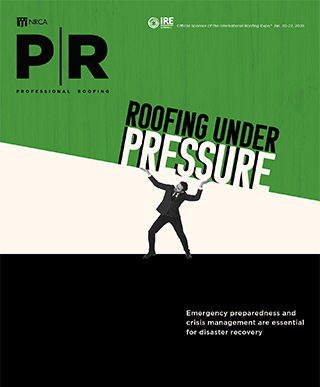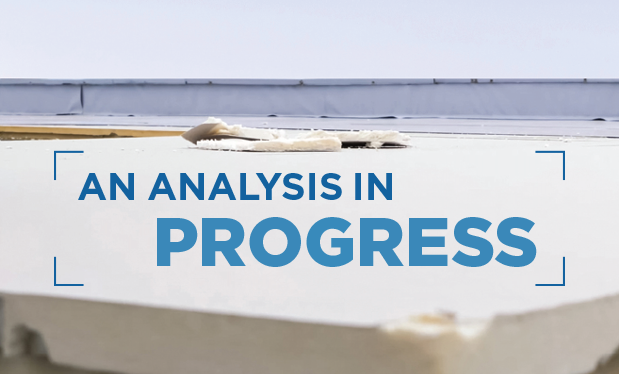Congress currently is considering three bills that, if passed, would require small businesses to submit paperwork regarding company ownership. The reporting is intended to help prevent the use of small businesses as shell corporations for illegitimate purposes. Shell corporations, which have no active business operations or significant assets, can be used by criminals and terrorists to conceal financial actions. Financial institutions currently must obtain and report business ownership information when taking on new clients. The bills under consideration would shift the reporting burden to small businesses.
Background
In May 2016, the Department of the Treasury’s Financial Crimes Enforcement Network finalized the customer due diligence rule under the authorities of the Bank Secrecy Act of 1970 and the USA PATRIOT Act. The customer due diligence rule requires financial institutions to obtain the beneficial ownership information of business clients opening new accounts. The rule is intended to help law enforcement identify criminals and stop the actions of drug dealers, terrorists and traffickers. Since the rule took effect in May 2018, financial institutions have actively lobbied Capitol Hill for relief.
Under review
In 2019, a bipartisan group of lawmakers led by Rep. Carolyn Maloney (D-N.Y.) introduced the Corporate Transparency Act of 2019 (H.R. 2513) in the House of Representatives. The bill aims to enhance efforts to reduce criminal activity and terrorism by creating new reporting requirements for certain corporations and limited liability companies.
Under the bill, the reporting requirements of the customer due diligence rule are placed on small businesses, defined as businesses with fewer than 20 employees, less than $5 million in revenue and a physical operating presence in the U.S. Small businesses would need to register their beneficial owners—whomever exercises substantial control over an entity, owns 25% or more equity in the entity and receives substantial economic benefits from the assets of the entity—with the Financial Crimes Enforcement Network and file reports annually for the duration of the business. Failure to do so would lead to $10,000 in civil penalties, three years in prison or a combination of the two penalties.
Information reported by small businesses would be accessible to international, federal, state and local law enforcement without a subpoena or warrant. According to research conducted by the National Federation of Independent Business, the reporting requirements would affect about 5 million businesses, add 13.2 million hours of work per year and cost $573 million annually. Over 10 years, that translates to 131.7 million hours at a cost of $5.7 billion.
In 2019, NRCA joined a coalition of business groups including the National Federation of Business and the U.S. Chamber of Commerce in actively opposing the Corporate Transparency Act of 2019 because of concern the new reporting requirements would be duplicative and excessively burdensome for small businesses. Although the need to crack down on terrorism and other criminal activity is understandable, NRCA doesn’t support the shift of burdensome paperwork from financial institutions to small businesses. In October 2019, NRCA issued an Action Alert encouraging members to reach out to their representatives and urge opposition to the bill. Unfortunately, the bill had significant support from financial institutions and the law enforcement community and passed in the House on a fairly bipartisan basis by a vote of 249–173.
The Senate Judiciary Committee now is considering the True Incorporation Transparency for Law Enforcement Act (S. 1889), a similar bill that may soon be approved. The bill expands the definition of beneficial ownership from an individual who has a 25% ownership interest in a business to any individual who “receives substantial economic benefits from the assets of” a business. Affecting more than 90% of U.S. businesses, the bill would require nearly every corporation or limited liability company with 20 or fewer employees, $5 million or less in gross receipts or sales, a physical operating presence in the U.S., and 100 or fewer shareholders to file the beneficial ownership. All information changes would need to be reported within 60 days. Failure to comply would result in up to three years in prison and up to $1 million in fines.
In September 2019, the ILLICIT Cash Act (S. 2563) was introduced in the Senate. The bill is substantially similar in purpose to the Corporate Transparency Act of 2019 and the True Incorporation Transparency for Law Enforcement Act. It differs by defining beneficial owners with substantial economic benefits as having access to 25% or more of the funds of an entity’s assets and goes a step further in requiring a rulemaking on the definition. The ILLICIT Cash Act also has a higher penalty for reporting violations (up to four years in prison) and would allow the Financial Crimes Enforcement Network, the Department of the Treasury, foreign governments and financial institutions access to the database without a subpoena. NRCA and other business groups actively oppose the True Incorporation Transparency for Law Enforcement Act and the ILLICIT Cash Act as the bills would shift ownership reporting requirements from financial institutions to small businesses and increase noncompliance penalties.
Looking ahead
NRCA will continue to advocate on behalf of small businesses and work to protect members from any increased paperwork burden. However, passage of the Corporate Transparency Act of 2019 in the House and significant bipartisan support for the Senate bills indicate some form of the legislation has a chance to be enacted into law this year. Small businesses should be prepared to report company ownership information as required by law.
Teri Dorn is NRCA's director of federal affairs.
This column is part of Rules + Regs. Click here to read additional stories from this section.



